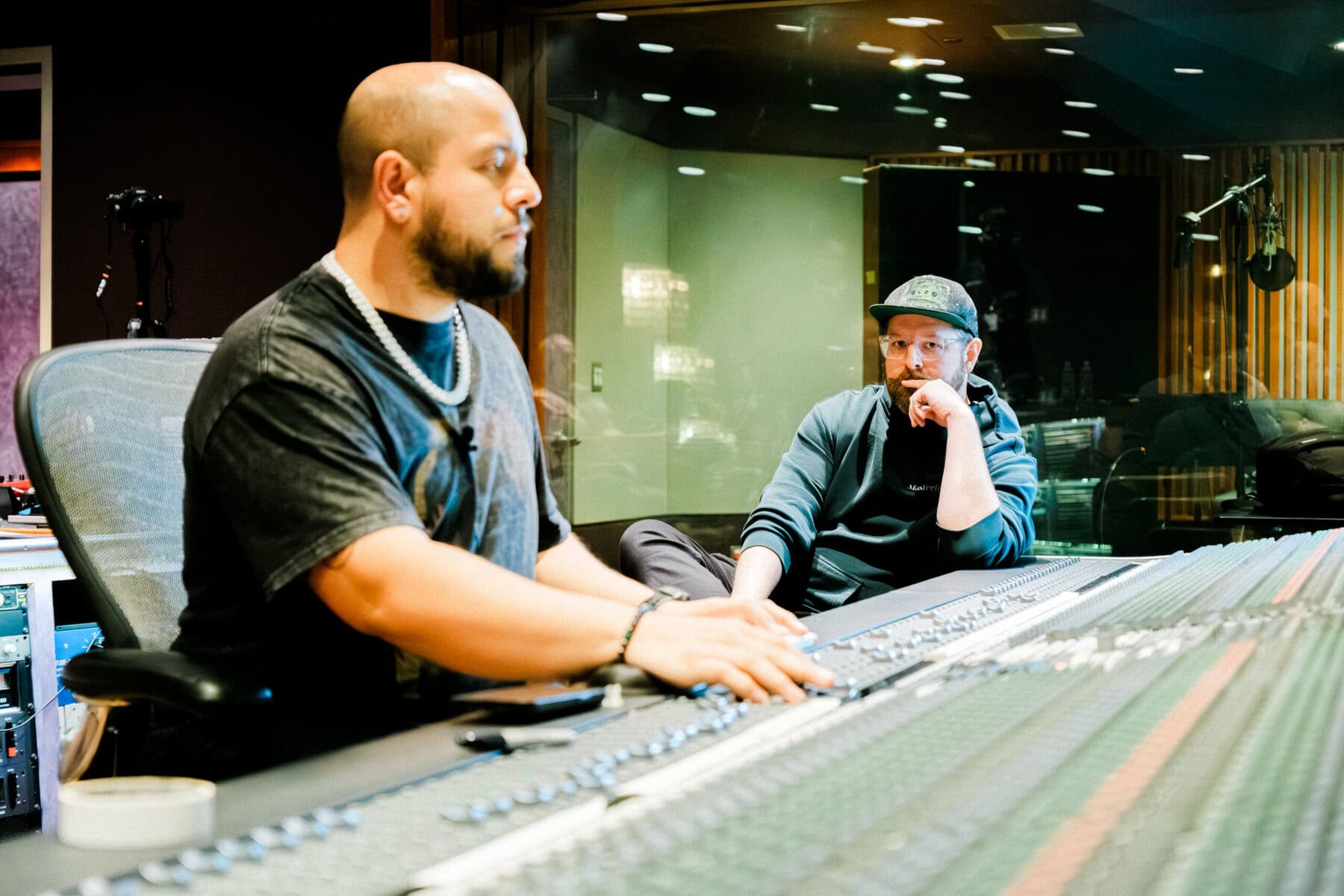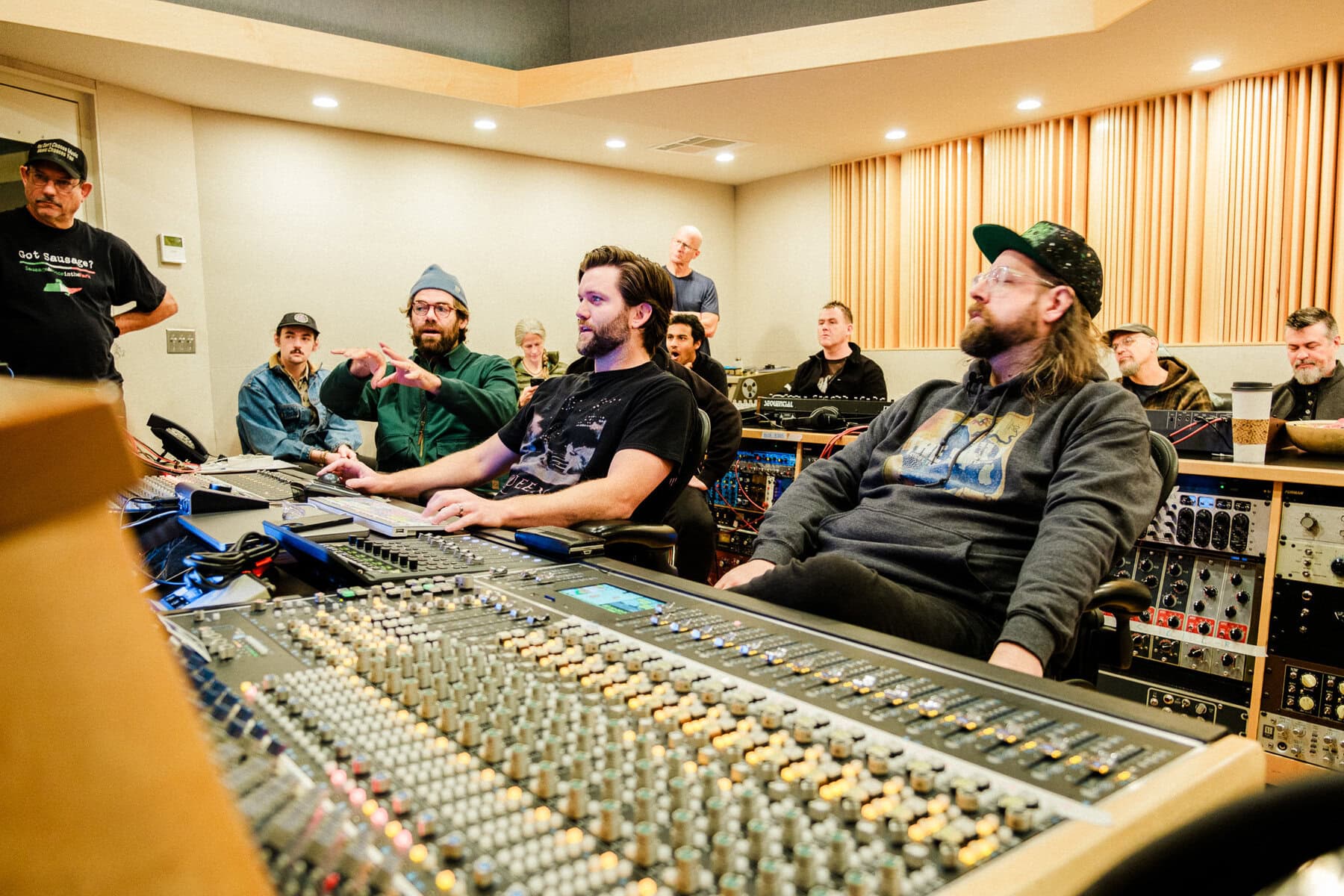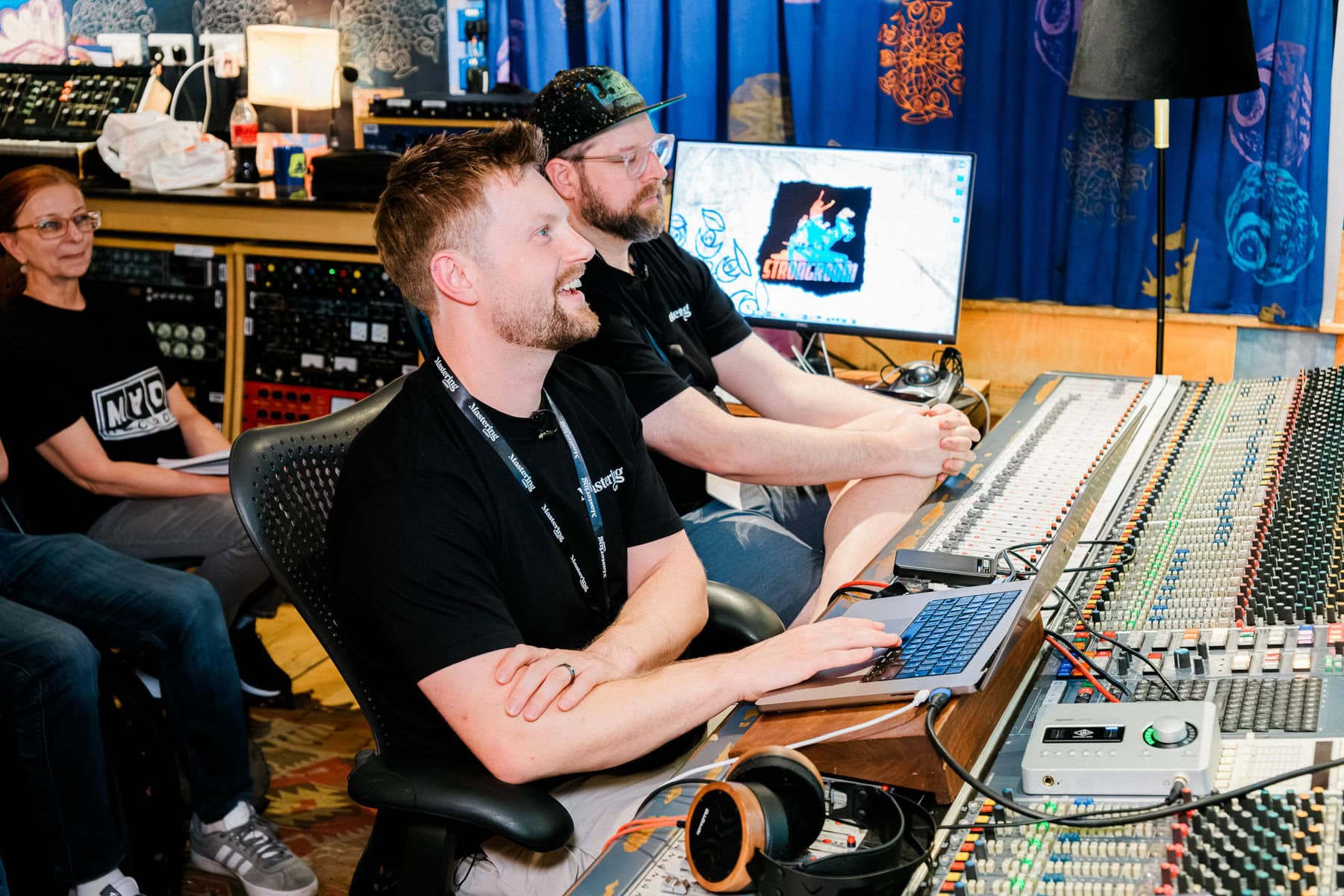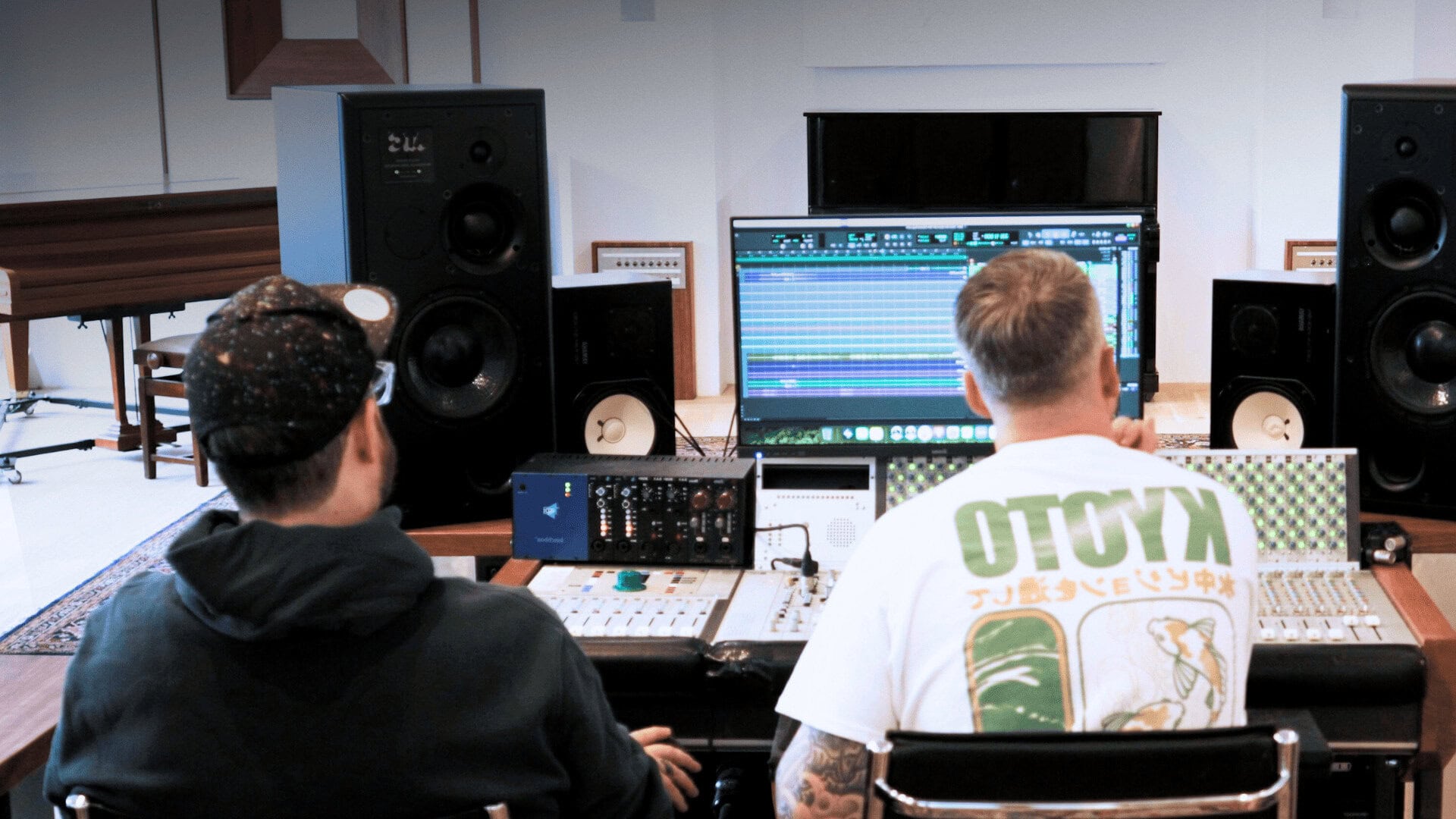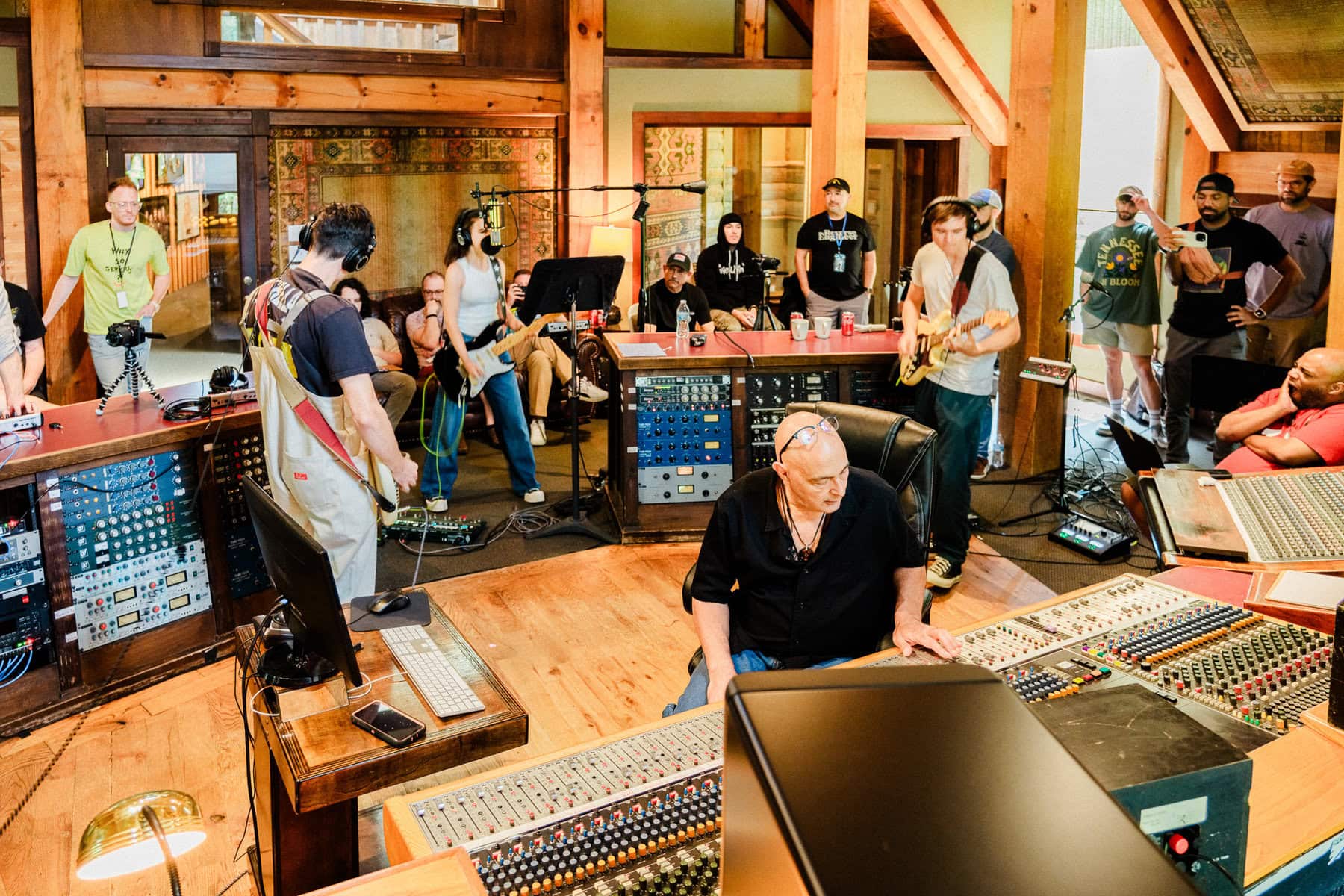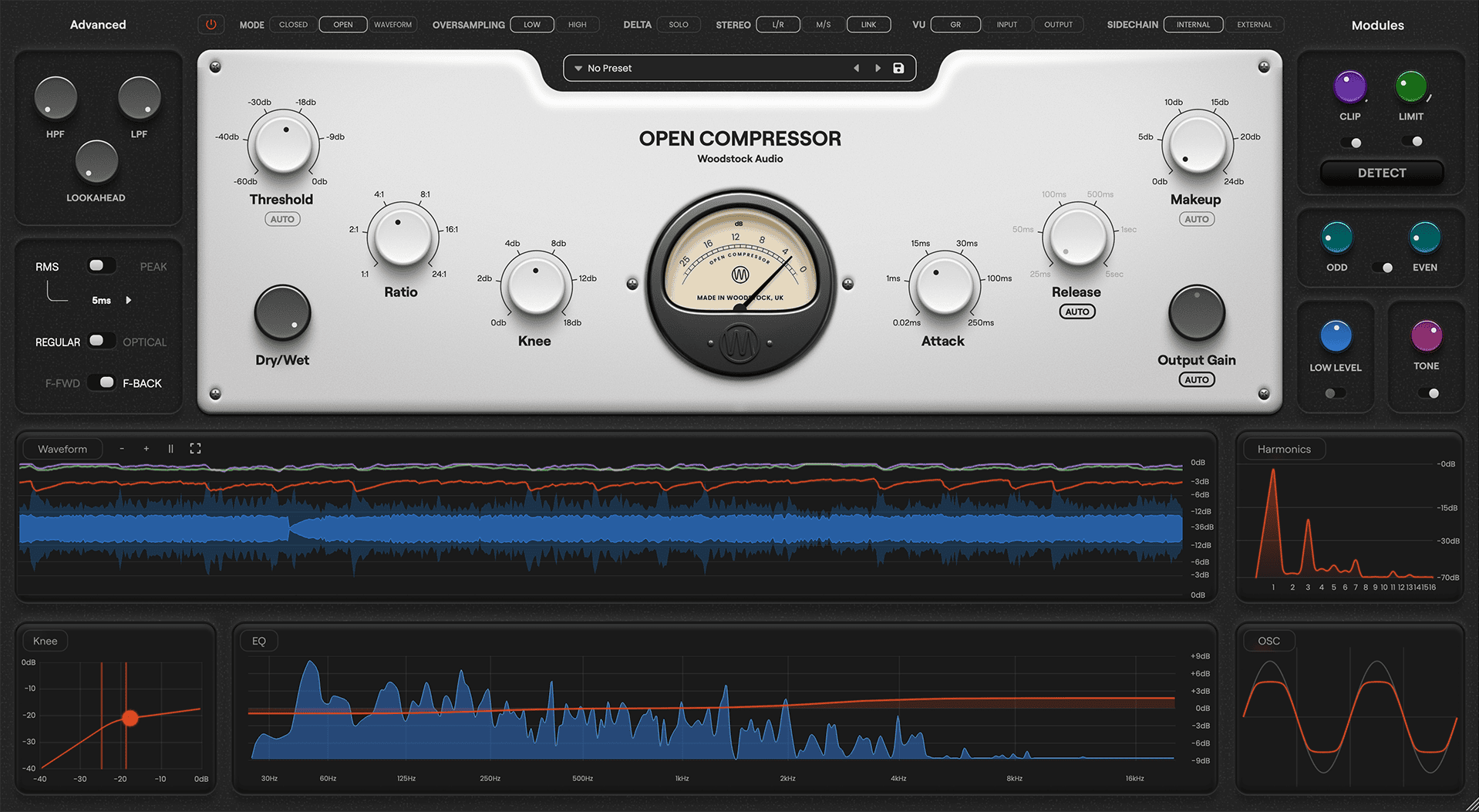If you’re reading this, I’m assuming you’re not a great singer (no offense).
You may not feel confident in your voice, or you may want to just sound better with less effects and autotune.
As a session singer, I can give you a couple of tips to help improve your voice!
While there aren’t any magic steps to turn a bad singer into a good one, there are a few hacks that can help you hit those notes a little better.
I’m guessing you’re here because you want to make your mixes sound professional. We put together a brief training that covers a totally new approach to music production. Until now, everyone has been teaching production totally backward. Just click below to watch.Get industry-quality every time (steal this framework)
But if you just want to learn all about Singing specifically, keep reading.
Before We Begin…
Many people think they are “bad” singers. While these tips won’t turn you into Ariana Grande, you may only need some practice and good coaching to improve.
Singing uses three main components: your hearing, your voice and your breathing. We could get more into detail and talk about other parts of the body and how they impact singing, but for our purposes we’ll focus on these three things.
If one of them is off, you’ll be off. Here are four steps to evaluate and improve each of these.
Step #1: Check Your Hearing
Hearing impacts your pitch by allowing you to hear not only the music around you, but the notes you’re currently singing as well.
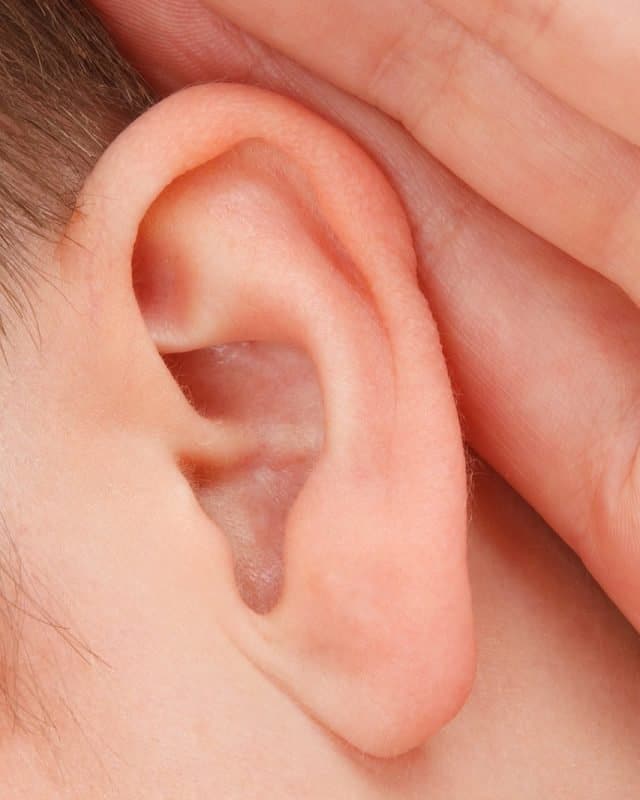
It’s no secret that your hearing abilities decrease as you get older, so ask yourself – when was the last time you had your ears checked? Many musicians have had a lifetime of loud albums and even louder concerts, so your ability to hear in general might be suffering.
There are tests online to check your hearing, such as this great one from Starkey. Online tests might not be as trustworthy as a doctor, but try one out to see if a doctor visit is warranted.
If you fail the online test, find a good local ENT or general doctor. To find an ENT, simply search “[our area] ENT doctor.” If you’re in the United States, check with your insurance to find a doctor to avoid a huge bill. If your hearing is fine, then we can move on to the next tip.
Step #2: Find Your Range
You’d be surprised how many people have no idea what their actual range is (even my fellow session singers, which kills me!)

It’s pretty easy to find your range, either by using an online test or using an instrument like a guitar or piano.
Knowing your limitations is not a weakness. In fact, knowing what notes you are capable of hitting will only serve you and your music better. What if you only have a range of three or four notes? That’s fine, you’ve got a starting point. Move on to step three!
Step #3: Work Your Range
Start at one note only. Play this note on your instrument (make sure your instrument is tuned!) and record yourself singing it. You don’t need to get hung up on vowels or mouth shape here, we’re only focusing on sound. Do what works for you!

Now analyze what you just sang. Play the note, sing the note, listen to the note. Are they the same? If not, were you under or over?
Continue to do this until you can hit that note with accuracy. If your ears are fine and you know it’s in your range, you may at this point be dealing with a muscle movement factor. You can hear the right note, and you are capable of hitting it, you just have to know how to do that with your voice.
It will take training and muscle memory to remember how exactly to hit that note. When you feel like this is possible, move to the next step.
Step #4: Find a Vocal Coach
I know… they’re expensive, you don’t have time, you tried it in high school, blah blah blah.
Here’s the honest truth:
If you want to sing well, you need a vocal coach.
Not every coach will work for every person, so you may have to see a few before you find one you like. A good coach will analyze your posture, breath support, tone, and delivery. They’ll be able to give personalized feedback and tips to improve.
It’s important to find a coach that can work with your preferred genre. Too many hopeful rock singers tell me they’re studying with a local broadway or opera coach. There are different techniques for different styles, so it’s important to find a coach that will work with your skill level and genre.
Many coaches are versatile, so make sure you double check before signing up!
What if you tried all of these and they didn’t help?
First, I think it is very important to assess your potential overall. I could train with a personal fitness trainer for years, but I would never come close to being an olympic gymnast. It’s just not me.
 Don’t get discouraged if you find out that singing just isn’t for you! Perhaps you found that you did improve a little, but you just didn’t enjoy it. That’s okay too. Like I said before, knowing your limitations is equally important to knowing your strengths.
Don’t get discouraged if you find out that singing just isn’t for you! Perhaps you found that you did improve a little, but you just didn’t enjoy it. That’s okay too. Like I said before, knowing your limitations is equally important to knowing your strengths.
What if you didn’t improve (but you really want to sing)?
Go for it!
History is full of people who didn’t have a traditionally “good” voice who were able to make it big (see: Billie Holiday, Tom Waits, most 70’s rock stars and 90’s punk stars). What matters about each of them is that they had attitude, soul and delivery. If you can’t force yourself to have a commercially “good” voice, see what you can do to bring out your soul.
You have a story to tell. You have pain and joy and every other human experience that connects you to others. How can you express that vocally?
Bonus Tip: Find Your “Thing”
Can you do a cool growl?
Do you have a monotone rap style?
Do you sound terrible but look great?

Use what you have and rock it. I’m sure you’re a fan of someone who doesn’t necessarily have the best voice, but you love them anyway. Why is that? Usually, they have a “thing,” whether that’s amazing lyrics, a unique style, or some other “thing” that just defines them and draws you to them. Figure out your own “thing,” and lean into it.
How to Get Better at Singing
- Improve your listening skills
- Find your vocal range
- Practice your vocal range
- Get a vocal coach
What if you tried everything and need a new singer?
This is typically where I would come in, or one of my lovely colleagues. There are many ways to find talented session singers online. You can simply google it, visit a session musician site, or ask around.
It’s important to differentiate between a professional session singer and an open mic singer who has a great voice. An experienced session musician will know mic techniques, styles and deliveries that are important to selling a song. While anyone can be a great session musician with training, you’ll want to make sure you hire someone who already has the experience to save you a lot of time and money.
If you want advice, opinions or want to work with me, feel free to hop over to my site and let me know!
Next Steps
If you want to dig deeper into music production and learn what it actually takes to make mixes that sound pro…
And you’re an intermediate or advanced producer…
Be sure to check out the free masterclass:
Enjoy!


